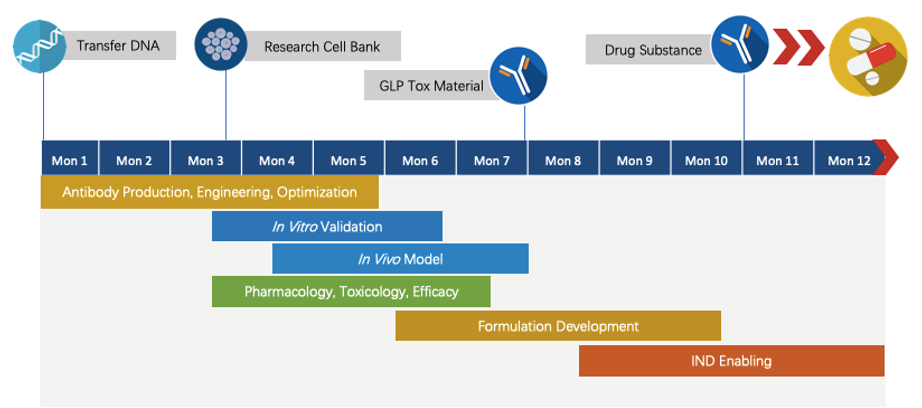
This program aims to develop anti-CD20 × CD28 therapeutic Bispecific Antibody for immuno-oncology.
T-cell-based cancer immunotherapy for some patients has demonstrated impressive achievements. In particular, by recognizing two different epitopes on T cells and cancer cells, Bispecific Antibody is attracting increasing attention as a novel strategy for cancer immunotherapy. Moreover, instead of focusing on traditional BiTEs, which all rely on CD3 signaling without providing co-stimulation, the highlight of our program is to develop CD28 Bispecific Antibody to focus on the co-stimulation pathway of T cell activation.
An antigen that is found on the surface of B cells, CD20 expresses in many B-cell malignancies, including chronic lymphocytic leukemia, diffuse large B-cell lymphoma, follicular lymphoma, and mantle cell lymphoma.

CD28 is a differentiation antigen expressed on thymocytes and most mature T cells, including all CD4 T cells and CD8 T cells with cytolytic activity. As is known, CD28, been named “T cell co-stimulation”, is now at the forefront of the field. In addition to its costimulatory role, studies demonstrated that CD28 ligation can enhance the production of various cytokines, such as IL-2, IL-4, and IL-10.
To the best of our knowledge, there are NO studies on anti-CD20 × CD28 BITE. The data we show here, to some extent, suggests that CD28 Bispecific Antibody and CD20 Bispecific Antibody have the potential to evolve to CD20 × CD28 BITE.



Based on the published data, we learn that the CD20 is highly expressed in B cell malignancies (including most non-Hodgkin’s lymphomas (NHL), some leukemias, and myelomas), which make up about 85% of all NHL worldwide. Therefore, our program primarily develops therapeutic Bispecific Antibody against the most popular and high-risk B cell lymphomas and leukemias.
 Fig2. B-cell malignancies make up about 85% of all NHL worldwide.
Fig2. B-cell malignancies make up about 85% of all NHL worldwide.
Currently, there are still NO clinical studies on the novel CD20 × CD28 BITE. While our program focuses on CD28 Bispecific Antibody antibodies, future efforts will develop simultaneous multiple interaction T-cell engaging (SMITE) bispecific pairs targeting other co-receptor signaling pathways. In this case, we are incredibly excited about this program and do our best to make the dual targeting method clinically feasible.

With extensive experience in providing CRO services, we are confident about streamlined end-to-end program development. For each program, we are committed to developing the complete program to our partners from antibody discovery, engineering, optimization, to pre-clinical studies. Periodic progress will be delivered to our clients for timely communications.


Creative Biolabs is looking for potential partners (including major pharma or biotech firms) to develop the anti-CD20 × CD28 Bispecific Antibody program. Our scientists are dedicated to bringing together years of value creation experience and research to explore strategic collaborations with our partner. This business strategy will enable both of us to proceed through IND and go beyond all stages of clinical trials.
If you are interested in our program, please feel free to contact us to learn more details about the cooperation. Looking forward to working with you in the near future.
For Research Use Only | Not For Clinical Use